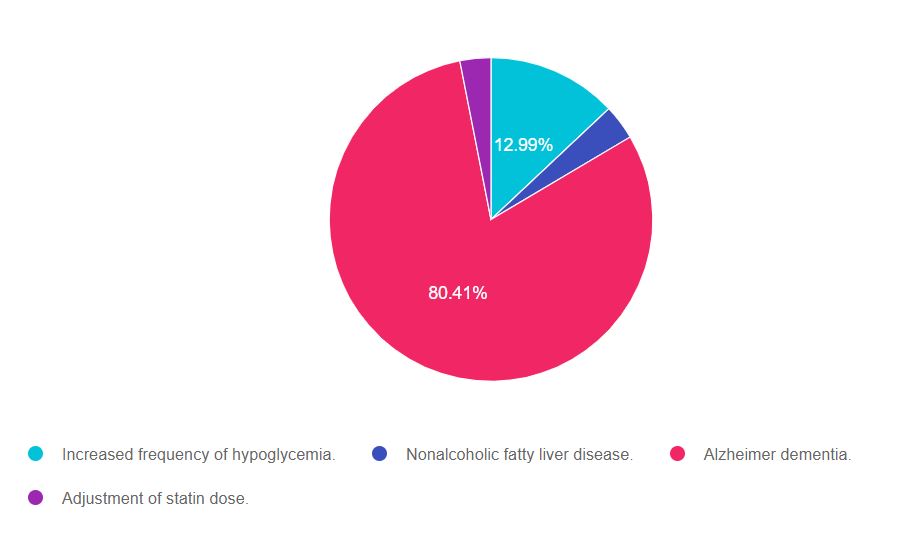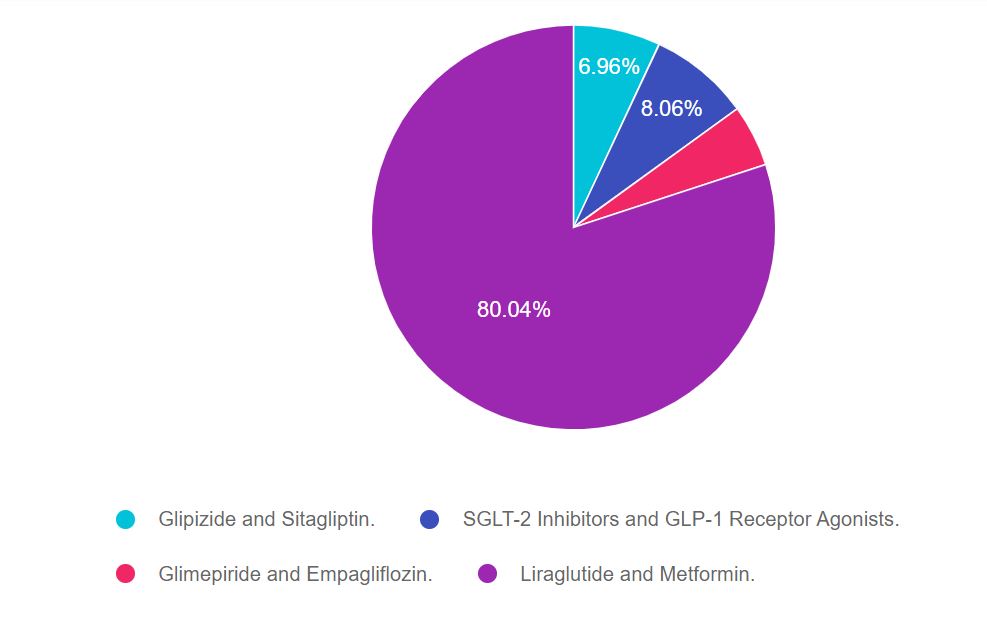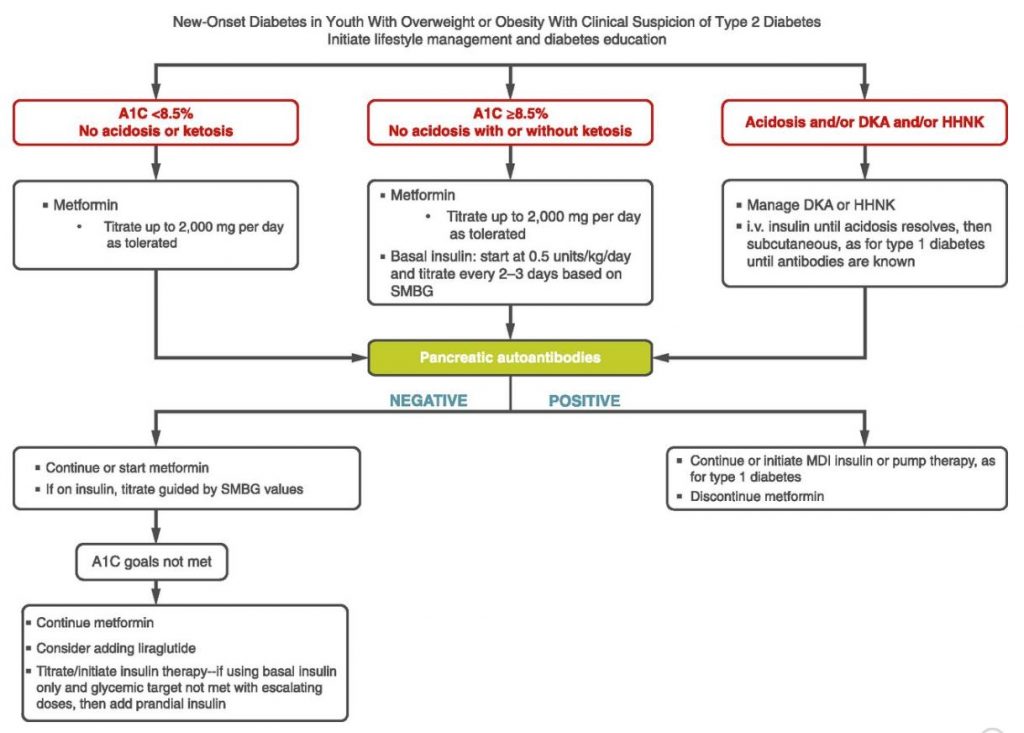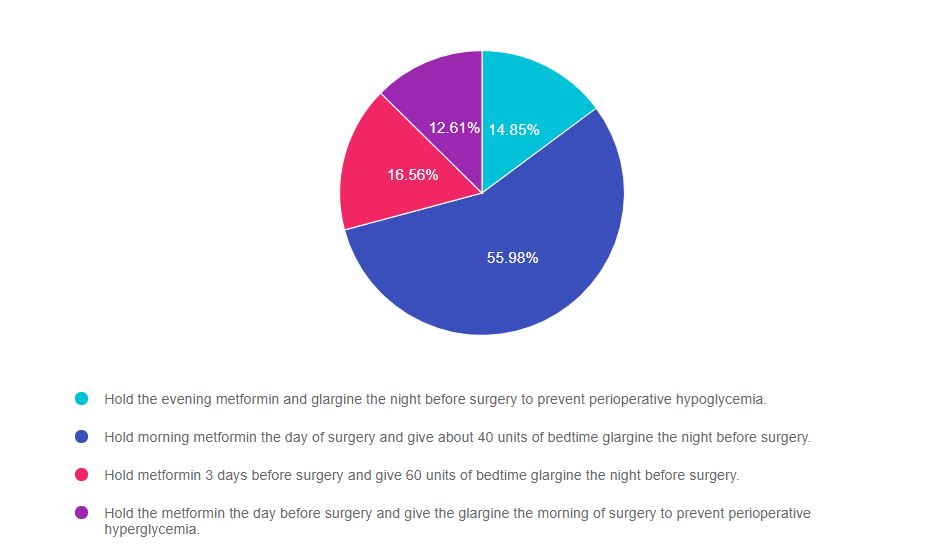Rationale of the Week | Why is JR missing insulin dose?

For our July 13th Question of the Week, 80% of respondents chose the best answer. GREAT JOB! We want to “take a closer look” at this question and determine strategies to choose the best response.
Before we start though, if you don’t want any spoilers and haven’t tried the question yet, you can answer below: Answer Question
Question 1: JR is 78, lives alone, and manages their diabetes with bolus insulin at breakfast and dinner and basal insulin at night. For the past few months, JR has had trouble remembering to take insulin with meals and JR’s most recent A1c is above 9%.
Which of the following is most likely contributing to this change of behavior for JR?
Answer Choices:
- Increased frequency of hypoglycemia.
- Nonalcoholic fatty liver disease.
- Alzheimer dementia.
- Adjustment of statin dose.

As shown above, the most common choice was option 3, the second most common answer was option 1, then option 2, and finally option 4.
Getting to the Best Answer
If you are thinking about taking the certification exam, the content of this practice test question will set you up for success. Being familiar with the experiences and co-conditions that impact older people’s ability to self-manage diabetes will be helpful for the exams.
Answers & Rationale
Answer 1 is incorrect, 12.99% chose this answer, “Increased frequency of hypoglycemia.” This is the juicy answer, but not the best one. Since JRs A1c is elevated, we don’t suspect hypoglycemia is causing the missed bolus doses of insulin. However, it is important to assess for hypoglycemic events for older individuals taking insulin.
Answer 2 is incorrect, 3.51% of you chose this answer, “Nonalcoholic fatty liver disease.” It is true that more people with diabetes are experiencing fatty liver disease. However, we get no indication from the question that JR has visceral adiposity, jaundice skin color or elevated liver enzymes. And fatty liver disease in the early stages is not commonly associated with forgetfulness.
Answer 3 is correct, 80.41% of you chose this answer, “Alzheimer dementia.” GREAT JOB, this is the best answer. People with diabetes and hyperglycemia are at higher risk of Alzheimer and vascular dementia. Dementia can decrease the ability to remember to take insulin and other medications which can then lead to hyperglycemia which can worsen dementia. If you suspect that someone is forgetting to take insulin due to dementia, reaching out to the referring provider for a cognitive assessment and evaluation is warranted. See screening tools here.
Answer 4 is incorrect, 3.09% of you chose this answer “Adjustment of statin dose.” A few years back, there was a social media buzz that statin therapy is associated with decreased cognition and memory loss. According to the ADA Standards of Care, multiple well designed studies have found no association between statins and memory loss.
We hope you appreciate this week’s rationale! Thank you so much for taking the time to answer our Question of the Week and participate in this fun learning activity!
Want to learn more about this topic? Enroll in our
Level 2 | Older Adults & Diabetes | 1.5 CEs

We have updated this content based on the ADA 2021 Standards of Care.
We are living longer and more people are getting diabetes. The American Diabetes Association has updated the Older Adults Standards, with special attention to considering reduction of medication and insulin therapy intensity. The older population has unique issues and special needs that require consideration as we provide diabetes self-management education. This online course highlights key areas of assessment, intervention, and advocacy for older clients living with diabetes.
Objectives:
- Self-management considerations for older individuals
- Strategies to prevent complications and maintain optimal quality of life
- The role of the Diabetes Educator as advocate
See Full Calendar for upcoming webinars and Virtual Courses.
Can’t make it live? All paid registrants are guaranteed access to the video presentation, handouts and podcasts.
Sign up for Diabetes Blog Bytes – we post one daily Blog Byte from Monday to Friday. And of course, Tuesday is our Question of the Week. It’s Informative and FREE! Sign up below!
[yikes-mailchimp form=”1″]Accreditation: Diabetes Education Services is an approved provider by the California Board of Registered Nursing, Provider 12640, and Commission on Dietetic Registration (CDR), Provider DI002. Since these programs are approved by the CDR it satisfies the CE requirements for the CDCES regardless of your profession.*
The use of DES products does not guarantee the successful passage of the CDCES exam. CBDCE does not endorse any preparatory or review materials for the CDCES exam, except for those published by CBDCE.
Question of Week | Best meal planning approach with GDM

LS is 26 weeks pregnant and just discovered she has gestational diabetes. LS asks you what type of meal planning approach will help keep her and the baby healthy.
According to the ADA Standards of Care, what is the most accurate response?
- To promote healthy fetal development, consume about 175 gms of carb a day.
- Try to eliminate simple carbohydrates to decrease risk of reactive hypoglycemia.
- Consume the majority of carbs in the morning when you are most insulin resistant.
- Eat no more than one serving of fruit a day to prevent hepatic fructose toxicity.
Click here to test your knowledge!
Want to learn more about this topic? Enroll in our
Level 2 | Pregnancy & Diabetes Standards | 1.5 CEs

People living with diabetes who are pregnant are confronted with a variety of issues that require special attention, education, and understanding.
This course reviews those special needs while focusing on Gestational Diabetes and Pre-Existing Diabetes. Included are the most recent diagnostic criteria, management goals, and prevention of complications during pregnancy. A helpful review for the CDCES Exam and for those who want more information on people who are pregnant and live with Diabetes.
Topics include:
- Three issues that affect pregnancy with diabetes
- The unique attributes of pre-existing diabetes in pregnancy and gestational diabetes
- Diagnostic criteria and management goals for gestational diabetes
- Potential short term and long term complications of fetal exposure to hypoglycemia
- Prevention measures to keep mother and baby healthy
See Full Calendar for upcoming webinars and Virtual Courses.
Can’t make it live? All paid registrants are guaranteed access to the video presentation, handouts and podcasts.
Sign up for Diabetes Blog Bytes – we post one daily Blog Byte from Monday to Friday. And of course, Tuesday is our Question of the Week. It’s Informative and FREE! Sign up below!
[yikes-mailchimp form=”1″]Accreditation: Diabetes Education Services is an approved provider by the California Board of Registered Nursing, Provider 12640, and Commission on Dietetic Registration (CDR), Provider DI002. Since these programs are approved by the CDR it satisfies the CE requirements for the CDCES regardless of your profession.*
The use of DES products does not guarantee the successful passage of the CDCES exam. CBDCE does not endorse any preparatory or review materials for the CDCES exam, except for those published by CBDCE.
CE Course: Pregnancy & Diabetes Standards
Want to learn more about Pregnancy & Diabetes? Join us live for our
Level 2 | Pregnancy & Diabetes Standards Webinar
1.5 CEs

People living with diabetes who are pregnant are confronted with a variety of issues that require special attention, education, and understanding.
This course reviews those special needs while focusing on Gestational Diabetes and Pre-Existing Diabetes. Included are the most recent diagnostic criteria, management goals, and prevention of complications during pregnancy. A helpful review for the CDCES Exam and for those who want more information on people who are pregnant and live with Diabetes.
Topics include:
- Three issues that affect pregnancy with diabetes
- The unique attributes of pre-existing diabetes in pregnancy and gestational diabetes
- Diagnostic criteria and management goals for gestational diabetes
- Potential short term and long term complications of fetal exposure to hypoglycemia
- Prevention measures to keep mother and baby healthy
See Full Calendar for upcoming webinars and Virtual Courses.
Can’t make it live? All paid registrants are guaranteed access to the video presentation, handouts and podcasts.
Sign up for Diabetes Blog Bytes – we post one daily Blog Byte from Monday to Friday. And of course, Tuesday is our Question of the Week. It’s Informative and FREE! Sign up below!
[yikes-mailchimp form=”1″]Accreditation: Diabetes Education Services is an approved provider by the California Board of Registered Nursing, Provider 12640, and Commission on Dietetic Registration (CDR), Provider DI002. Since these programs are approved by the CDR it satisfies the CE requirements for the CDCES regardless of your profession.*
The use of DES products does not guarantee the successful passage of the CDCES exam. CBDCE does not endorse any preparatory or review materials for the CDCES exam, except for those published by CBDCE.
Rationale of the Week | What Diabetes Meds approved for Peds?

For our July 6th Question of the Week, 80% of respondents chose the best answer. We want to “take a closer look” at this question and determine strategies to choose the best response.
Before we start though, if you don’t want any spoilers and haven’t tried the question yet, you can answer below: Answer Question
Question 1: JR is a 15-year-old with newly diagnosed type 2 diabetes, with an A1c of 8.3% and elevated lipids.
In addition to nutrition and activity coaching, which of the following medications are FDA approved for pediatrics?
Answer Choices:
- Glipizide and Sitagliptin
- SGLT-2 Inhibitors and GLP-1 Receptor Agonists
- Glimepiride and Empagliflozin
- Liraglutide and Metformin

As shown above, the most common choice was option 4, the second most common answer was option 2, then option 1, and finally option 3.
Getting to the Best Answer
If you are thinking about taking the certification exam, the content of this practice test question will set you up for success. The exam will present questions that require test takers to be familiar with knowledge of special populations like pediatrics, older folks and management of diabetes during pregnancy. According to the ADA Standards of Care, Section 13 of Children and Adolescents, here is the best answer.
Answers & Rationale
Answer 1 is incorrect, 6.96% chose this answer, “Glipizide and Sitagliptin.” Although commonly used in adults, sulfonylureas, including glipizide and DPP-IV’s including Sitagliptin, are not FDA approved for people under the age of 18.
Answer 2 is incorrect, 8.06% of you chose this answer, “SGLT-2 Inhibitors and GLP-1 Receptor Agonists.” Although commonly used in adults, SGLT-2s are not FDA approved for people under the age of 18. There is one GLP-1 Receptor Agonists, liraglutide (Victoza) approved for use in pediatrics over the age of 10. However, none of the other GLP-1 RAs are FDA approved for pediatrics.
Answer 3 is incorrect, 4.95% of you chose this answer, “Glimepiride and Empagliflozin.” Although commonly used in adults, sulfonylureas, including glimepiride and SGLT-2 Inhibitors, including empagliflozin, are not FDA approved for people under the age of 18.
Answer 4 is Correct, 80.04% of you chose this answer “Liraglutide and Metformin.” Great Job! For children under the age of 18, the only FDA approved pharmacologic interventions include metformin, liraglutide and insulin.
We hope you appreciate this week’s rationale! Thank you so much for taking the time to answer our Question of the Week and participate in this fun learning activity!

Want to learn more about this topic? Enroll in our
Level 2 | From Tots to Teens Diabetes Standards | 1.5 CEs

This course includes updated goals and guidelines for children living with type 1 or type 2 diabetes. This course discusses the special issues diabetes educators need to be aware of when working with children with diabetes and their families.
We discuss the clinical presentation of diabetes, goals of care, and normal growth and development through the early years through adolescence. Strategies to prevent acute and long term complications are included with an emphasis on positive coping for family and child with diabetes.
Topics include:
- Discuss the goals of care for Type 1 and Type 2 Kids with Diabetes
- State Strategies to prevent acute and chronic complications
- Discuss the importance of positive psychosocial adjustment and resources
See Full Calendar for upcoming webinars and Virtual Courses.
Can’t make it live? All paid registrants are guaranteed access to the video presentation, handouts and podcasts.
Sign up for Diabetes Blog Bytes – we post one daily Blog Byte from Monday to Friday. And of course, Tuesday is our Question of the Week. It’s Informative and FREE! Sign up below!
[yikes-mailchimp form=”1″]Accreditation: Diabetes Education Services is an approved provider by the California Board of Registered Nursing, Provider 12640, and Commission on Dietetic Registration (CDR), Provider DI002. Since these programs are approved by the CDR it satisfies the CE requirements for the CDCES regardless of your profession.*
The use of DES products does not guarantee the successful passage of the CDCES exam. CBDCE does not endorse any preparatory or review materials for the CDCES exam, except for those published by CBDCE.
A Radical New Approach to Diabetes Care – Vayu Health
Delivering person-centered high quality diabetes care to high-risk individuals with diabetes is no easy task in our current complicated health environment. We are excited to share our interview with Dr. Avni Shah, Founder of Vayu Health, and her vision to provide equitable diabetes care delivery for our most vulnerable populations. Dr. Shah and her team are proposing a radical new equity focused-approach to diabetes care. To learn more, read our interview below.
“Our vision is to transform the lives of under served Medicaid members living with multiple chronic conditions, behavioral health needs, and social determinants of health (SDOH) through a team-based approach to care that places people at the center of decisions about their own health. We are passionately driven to improve health, equity, and experiences for every person we work with, while also lowering costs,” said Dr. Avni Shah.
Dr. Shah says their care model is rooted in trusting relationships with patients, and also with the providers, community partners and health plans that they work with. To sustain vibrant, patient-centered programs they are designing a payment model that rewards their care team for doing the right thing at the right time for these vulnerable populations.
They believe that a major shift is needed in the way care is delivered for under resourced people living with chronic conditions, especially sub optimally managed diabetes, and are currently looking to build out their clinical team, including a Certified Diabetes Care and Education Specialist (CDCES) and a Licensed Clinical Social Worker (LCSW).
Interview with Dr. Avni Shah
1. What motivated you to leave a traditional work setting as a Peds Endo and take the risk to create a new health care model for Medicaid members living with diabetes?

- It is really about who the traditional healthcare work setting failed that motivated me to leave: 1) patients and families living with chronic conditions, especially the underserved 2) my teammates and 3) my conscience (ie my moral injury).
- We need something different and I believe it can be different. What we all need and strive for are: trusting relationships, joy in work and life, and direct translation of our work to better health and equity. We want to do what we know works, which is often not what can be supported and billed/paid in the traditional work setting.
2. What do you consider the biggest shortcomings in our current approach to providing diabetes care?
- Shortcomings that create barriers to doing what we know work are:
1) the lack of alignment of what success looks like between a patient, the health system, and the health plan plus
2) the lack of payment for your time (ie phone calls, home visits), needed innovations (ie virtual care, community integrations), and integrated team based resources (ie educators, coaches, behavioral specialists) to enable a personalized method for empowering patients to meet their goal(s).
3. Describe your future vision and model of diabetes care provision.
We believe that it is past time for a seismic change in chronic care management, especially for diabetes. Our primary-care based model is what is needed right now for people with diabetes and will include the following key components:
- Whole-person care, integrating medical, behavioral, social, and self-management care
- Team based approach including a local coach, CDCES, LCSW, and PCP
- High-touch and flexible interactions, both in-person and virtual
- Trauma-informed and culturally sensitive approach
- Focus on building trust and engagement by identifying a person’s self-identified goals and helping achieve them
- Utilize local community assets to address social determinants of health
- Read more below
4. Do you have a favorite quote?
I have many quotes I love, but none that are a favorite. So here are a few:
- You must be the change you want to see in the world. – Mahatma Gandhi
- What you do makes a difference, and you have to decide what kind of difference you want to make. -Jane Goodall
- I have found the paradox, that if you love until it hurts, there can be no more hurt, only more love. – Mother Teresa
- Seek first to understand, then to be understood. – Stephen Covey
What is Vayu’s Goal? To Spark a Fundamental Change in Diabetes Care Delivery
Vayu Health was started by physicians who work extensively with adults and children with not only diabetes, but other chronic conditions, behavioral health issues and social risk factors. Vayu’s team recognized that despite best efforts of providers and patients, of new drugs and technologies, and of increased spending, population health outcomes have not improved significantly over the last 20 years for individuals living with chronic conditions such as diabetes, especially for those with low incomes. COVID-19 has only intensified the call for change as it has disproportionately impacted individuals already marginalized by our healthcare system failures.
To address this urgent crisis, fundamental change in the healthcare system is needed and Vayu Health is poised to create this change.
Identifying System Failures and Building Solutions
To successfully build their model, Vayu first identified the healthcare system failures, cataloging the barriers to people with diabetes receiving the right care. They identified four key barriers that needed to be addressed:
- Right care at the right time: The healthcare system is not always known for flexibility or quick response time, and when serving large volumes of patients, can default to a one-size-fits-all approach. Individuals with chronic conditions however have a wide variety of needs depending on lifestyle, disease severity and the environment in which they live. The system must be able to match patients with the right care when and where they need it.
- Treating the disease, not the person: A person with diabetes likely also has other clinical, behavioral and/or social needs, yet the delivery system frequently treats just the diabetes. To effectively support people with diabetes, programs must also address social issues, self-management needs, behavioral care, looking at the whole person instead of just the condition.
- Lack of timely, accurate data: The healthcare system is composed of multiple parts and people, which commonly do not interact smoothly with each other. People with diabetes can see primary care providers, specialists, be admitted to hospitals and get lab work and prescriptions, and data from all of these entities are vital to tracking and managing their health and making informed decisions about their care.
- Payment for some things, not always the right things: Treatment for people with diabetes works best when a team works together, each person contributing to the top of their license. However, payment for services does not always cover the cost of each staff member, requiring providers and their teams to make tough choices about how much they can invest in a team-based model.
Vayu Health’s Innovative Model
Vayu Health is taking on each of these systemic barriers, and addressing them in a cohesive, person-centered care model. As Medicaid members disproportionately experience care failures, Vayu is focusing on Medicaid managed care patients, living with diabetes and other chronic conditions.
They are collaborating with one of California’s largest Medicaid managed care health plans and a California community health center to develop and integrate Vayu Health’s unique systems approach, including a new value-based payment that will incentivize doing the right thing at the right time for patients. This collaboration is the first step in a systematic shift in the way community primary care providers and patients experience care and the way that Medicaid managed health plans cover the costs.
In addition to the best practice chronic condition care model, a healthcare ecosystem will be developed which will incorporate the following system elements:
- Alignment across providers, health plans and providers on care model and payment
- Value-based payment to support the best practice care model (i.e. population based prospective)
- Appropriate target population
- Linkage of appropriate outcome and cost data
- Continuous improvement driven by quality improvement methodology
- Infrastructure/business financing needs
- Technology required to enable effective team care
Equity-focused start-up is looking for innovators to launch a new diabetes care model:
Vayu Health is a California non-profit set to launch a completely different care model for people with diabetes living in under served communities, and is looking for like-minded people passionate about equity, person-centered care, and reducing barriers to accessing high-caliber diabetes care.
If you love working in an innovative team environment, are excited by participating in creative programming for patients, and are an independent thinker and self-starter, this just might be the perfect opportunity for you.
The Vayu Team is looking for a CDCES and LCSW
The team is made up of people that are excited about building something new, and every team member regardless of role has a voice in creating the company. Vayu believes passionately in reducing barriers to care for vulnerable populations, and has a strong focus on equity. The care team includes local community coaches, certified diabetes educators, licensed clinical social workers, and community clinic physicians. With this multidisciplinary team, care delivery will be a combination of coordinated, proactive in-person and virtual care, delivered when and where the patient needs it.
Vayu has the commitment of the community clinic and Medicaid healthcare plan, as well as national experts in diabetes care, Medicaid managed care healthcare payment reform, and chronic care system design and optimization.
CORE TEAM:
- Avni Shah, MD, Pediatric Endocrinologist: Previous diabetes director at Stanford Children’s and faculty leader for T1D national quality improvement collaboration. Currently volunteer faculty at UCSF. She had gestational diabetes requiring insulin, has pre-diabetes, and has a strong family history of Type 2 Diabetes.
- Margie Powers, MSW, MPH: Design and implement population health initiatives for provider groups, health plans and self-insured employers across the country, with focus on serving Medicaid populations at Federally Qualified Health Centers in California. Previously Director of Medically Complex Patients Program at Purchaser’s Business Group on Health in San Francisco.
- Alan Glaseroff, MD, Family Practitioner (pro bono): Designed and led Stanford Coordinated Care (SCC) and Humboldt Diabetes Project which both showed significant improvement in outcomes, patient experience, patient activation, utilization, and costs. He has lived with Type 1 Diabetes since 1983.
- John Bertko, F.S.A., M.A.A.A. (pro bono): Actuarial consultant serving as the Chief Actuary with Covered California (California’s Insurance Marketplace). Past Director of Special Initiatives and Pricing in the Center for Consumer Information and Insurance Oversight at the Centers for Medicare and Medicaid Services (CMS) and Chief Actuary of Humana Inc.
This is an incredible opportunity to join a dynamic mission-driven company with visionary leadership and a bold and inclusive culture. Interested people should directly contact Margie ([email protected] or 415-225-4787).
See Full Calendar for upcoming webinars and Virtual Courses.
Can’t make it live? All paid registrants are guaranteed access to the video presentation, handouts and podcasts.
Sign up for Diabetes Blog Bytes – we post one daily Blog Byte from Monday to Friday. And of course, Tuesday is our Question of the Week. It’s Informative and FREE! Sign up below!
[yikes-mailchimp form=”1″]Accreditation: Diabetes Education Services is an approved provider by the California Board of Registered Nursing, Provider 12640, and Commission on Dietetic Registration (CDR), Provider DI002. Since these programs are approved by the CDR it satisfies the CE requirements for the CDCES regardless of your profession.*
The use of DES products does not guarantee the successful passage of the CDCES exam. CBDCE does not endorse any preparatory or review materials for the CDCES exam, except for those published by CBDCE.
Question of Week | Why is JR missing insulin dose?

JR is 78, lives alone and manages their diabetes with bolus insulin at breakfast and dinner and basal insulin at night. For the past few months, JR has had trouble remembering to take insulin with meals and JR’s most recent A1c is above 9%.
Which of the following is most likely contributing to this change of behavior for JR?
- Increased frequency of hypoglycemia.
- Nonalcoholic fatty liver disease.
- Alzheimer dementia.
- Adjustment of statin dose.
Click here to test your knowledge!
Want to learn more about this topic? Enroll in our
Level 2 | Older Adults & Diabetes | 1.5 CEs

We have updated this content based on the ADA 2021 Standards of Care.
We are living longer and more people are getting diabetes. The American Diabetes Association has updated the Older Adults Standards, with special attention to considering reduction of medication and insulin therapy intensity. The older population has unique issues and special needs that require consideration as we provide diabetes self-management education. This online course highlights key areas of assessment, intervention, and advocacy for older clients living with diabetes.
Objectives:
- Self-management considerations for older individuals
- Strategies to prevent complications and maintain optimal quality of life
- The role of the Diabetes Educator as advocate
See Full Calendar for upcoming webinars and Virtual Courses.
Can’t make it live? All paid registrants are guaranteed access to the video presentation, handouts and podcasts.
Sign up for Diabetes Blog Bytes – we post one daily Blog Byte from Monday to Friday. And of course, Tuesday is our Question of the Week. It’s Informative and FREE! Sign up below!
[yikes-mailchimp form=”1″]Accreditation: Diabetes Education Services is an approved provider by the California Board of Registered Nursing, Provider 12640, and Commission on Dietetic Registration (CDR), Provider DI002. Since these programs are approved by the CDR it satisfies the CE requirements for the CDCES regardless of your profession.*
The use of DES products does not guarantee the successful passage of the CDCES exam. CBDCE does not endorse any preparatory or review materials for the CDCES exam, except for those published by CBDCE.
July eNews | A Radical New Approach to Diabetes Care Needed

Happy July!
Did you know that only about 50% of people in the U.S. are reaching the A1C target of less than 7%?
And only 22% of Americans reached all 3 targets for A1C, blood pressure, and lipids.
Unfortunately, the percentage of people reaching these goals has declined or stalled over the past ten years. These disappointing results are based on an analysis of the most recent data from the National Health and Nutrition Examination Survey (NHANES) published in NEJM this June.
But I have hope for several reasons!
First, Diabetes Care and Education Specialists can continue to raise awareness of the ADA Standards of Care for Diabetes and advocate for initiating first-line and add-on therapies in their work settings. Plus, we can encourage streamlining of the referral process to facilitate participant access to DSMES and to RD/RDN for initial and ongoing lifestyle and nutrition counseling. Plus, we discuss lots more ideas to improve care in the article below.
Second, I am excited to highlight our interview with a health care visionary and leader, Dr. Avni Shah, who is moving forward with a radical approach to providing diabetes care to our most vulnerable populations designed to improve outcomes.
Third, to improve care, we need more CDCES’s and taking the exam just got a little bit easier. By the end of the year, we will be able to take the CDCES exam from our home or other remote locations.
In this newsletter, we also dive into a Pediatric Question of the Week and explore Preparation for Surgery with our Rationale of the Week. We are thrilled by the interest & response to our Live San Diego Course in October and look forward to gathering together again in person.
Keep cool everyone,
Coach Beverly, Bryanna, Jackson, and Robert
Click here to read our full July 2021 newsletter.
Featured Blogs
- Diabetes Care in the US
- Interview with Dr. Avni Shah from Vayu Health – A Radical Approach to Diabetes Care
- Take Your CDCES Exam at Home?!
- Bev Renews her BC-ADM for the Fifth Time
- Question of the Week – What are Pediatric Glucose Targets?
- Rationale of the Week – How to Prep for Surgery
Upcoming Events & Resources
- DiabetesEd Course in San Diego, Oct 6-8, 2021
- ADCES Exam Desk Reference + Review Guide
- Pancreas Partner + DiaCell Teaching Tools
- Tots to Teen Webinar
- Diabetes and Pregnancy Webinar
- Free Resources Catalog
Sign up for Diabetes Blog Bytes – we post one daily Blog Byte from Monday to Friday. And of course, Tuesday is our Question of the Week. It’s Informative and FREE! Sign up below!
[yikes-mailchimp form=”1″]Accreditation: Diabetes Education Services is an approved provider by the California Board of Registered Nursing, Provider 12640, and Commission on Dietetic Registration (CDR), Provider DI002. Since these programs are approved by the CDR it satisfies the CE requirements for the CDCES regardless of your profession.*
The use of DES products does not guarantee the successful passage of the CDCES exam. CBDCE does not endorse any preparatory or review materials for the CDCES exam, except for those published by CBDCE.
Rationale of the Week | How to Prep for Surgery

For our June 29th Question of the Week, 56% of respondents chose the best answer. Since people with diabetes will often need to undergo a procedure or surgery that requires they be NPO, we wanted to “take a closer look” at this question and determine strategies to choose the best response.
Before we start though, if you don’t want any spoilers and haven’t tried the question yet, you can answer below: Answer Question
Question 1: AR is living with type 2 diabetes, has an A1c of 7.4%, and takes metformin 1000 BID and 60 units of glargine at bedtime. AR is admitted to the hospital overnight for early morning surgery.
According to ADA Guidelines, what adjustment in his diabetes medications are needed to prepare for a safe surgery?
Answer Choices:
- Hold the evening metformin and glargine the night before surgery to prevent perioperative hypoglycemia.
- Hold morning metformin the day of surgery and give about 40 units of bedtime glargine the night before surgery.
- Hold metformin 3 days before surgery and give 60 units of bedtime glargine the night before surgery.
- Hold the metformin the day before surgery and give the glargine the morning of surgery to prevent perioperative hyperglycemia.

As shown above, the most common choice was option 2, the second most common answer was option 3, then option 1, and finally option 4.
Getting to the Best Answer
If you are thinking about taking the certification exam, the content of this practice test question will set you up for success. The exam will present questions that require test takers to be familiar with knowledge of preparation for surgery or other procedures that require the person with diabetes to be in a fasting state.
Answers & Rationale
Answer 1 is incorrect, 14.85% chose this answer, “Hold the evening metformin and glargine the night before surgery to prevent perioperative hypoglycemia.” Since AR has type 2 diabetes, even though AR is going to be NPO in preparation for surgery, AR can still take the evening metformin and most of the glargine. If AR holds both of these treatments, there is a high chance that AR will wake up with elevated morning blood sugars, which could delay surgery or lead to a hyperglycemic crisis.
Answer 2 is correct, 55.98% of you chose this answer, “Hold morning metformin the day of surgery and give about 40 units of bedtime glargine the night before surgery.” GREAT JOB. This is the BEST answer. According to the ADA, since AR has type 2 diabetes, even though AR is going to be NPO in preparation for surgery, AR can still take the evening metformin and 60-80% of the evening glargine. Since AR’s A1c is 7.4%, we give 60% of the usual 60 units of glargine (~40 units), so that AR wakes up with glucose close to the target, but not too low to cause hypoglycemia.
Answer 3 is incorrect, 16.56% of you chose this answer, “Hold metformin 3 days before surgery and give 60 units of bedtime glargine the night before surgery.” Since AR has type 2 diabetes, even though AR is going to be NPO in preparation for surgery, there is no reason for AR to hold the metformin for 3 days. AR can take metformin the day before surgery and resume metformin the evening after surgery if kidney function is stable. Since AR’s A1c is 7.4%, we give only 60% of the usual 60 units of glargine (~40 units), so that AR wakes up with glucose close to the target, but not too low to cause hypoglycemia.
Answer 4 is incorrect, 12.61% of you chose this answer “Hold the metformin the day before surgery and give the glargine the morning of surgery to prevent perioperative hyperglycemia.” Since AR has type 2 diabetes, even though AR is going to be NPO in preparation for surgery, there is no reason for AR to hold the metformin the day before surgery. AR can take metformin the day before surgery and resume metformin the evening after surgery if kidney function is stable. As far as changing glargine administration time to the morning to lower surgical glucose, this would not be advised since it would be a departure from AR’s usual routine and could cause unwanted glucose fluctuations.
We hope you appreciate this week’s rationale! Thank you so much for taking the time to answer our Question of the Week and participate in this fun learning activity!
Want to learn more about this topic? Enroll in our
Level 2 | Hospitals & Hyperglycemia Standards | 1.5 CEs

Research clearly demonstrates the importance of glucose control during hospitalization to improve outcomes not only in the inpatient setting but after discharge. This course reviews the evidence that supports inpatient glucose control and outline practical strategies to achieve targets in the inpatient setting. We incorporate the latest ADA Standards and provide links to resources and inpatient management templates.
Topics include:
- The impact of hyperglycemia in the hospital setting.
- The importance of inpatient glucose control.
- Three strategies to get glucose to goal in the hospital setting.
See Full Calendar for upcoming webinars and Virtual Courses.
Can’t make it live? All paid registrants are guaranteed access to the video presentation, handouts and podcasts.
Sign up for Diabetes Blog Bytes – we post one daily Blog Byte from Monday to Friday. And of course, Tuesday is our Question of the Week. It’s Informative and FREE! Sign up below!
[yikes-mailchimp form=”1″]Accreditation: Diabetes Education Services is an approved provider by the California Board of Registered Nursing, Provider 12640, and Commission on Dietetic Registration (CDR), Provider DI002. Since these programs are approved by the CDR it satisfies the CE requirements for the CDCES regardless of your profession.*
The use of DES products does not guarantee the successful passage of the CDCES exam. CBDCE does not endorse any preparatory or review materials for the CDCES exam, except for those published by CBDCE.








